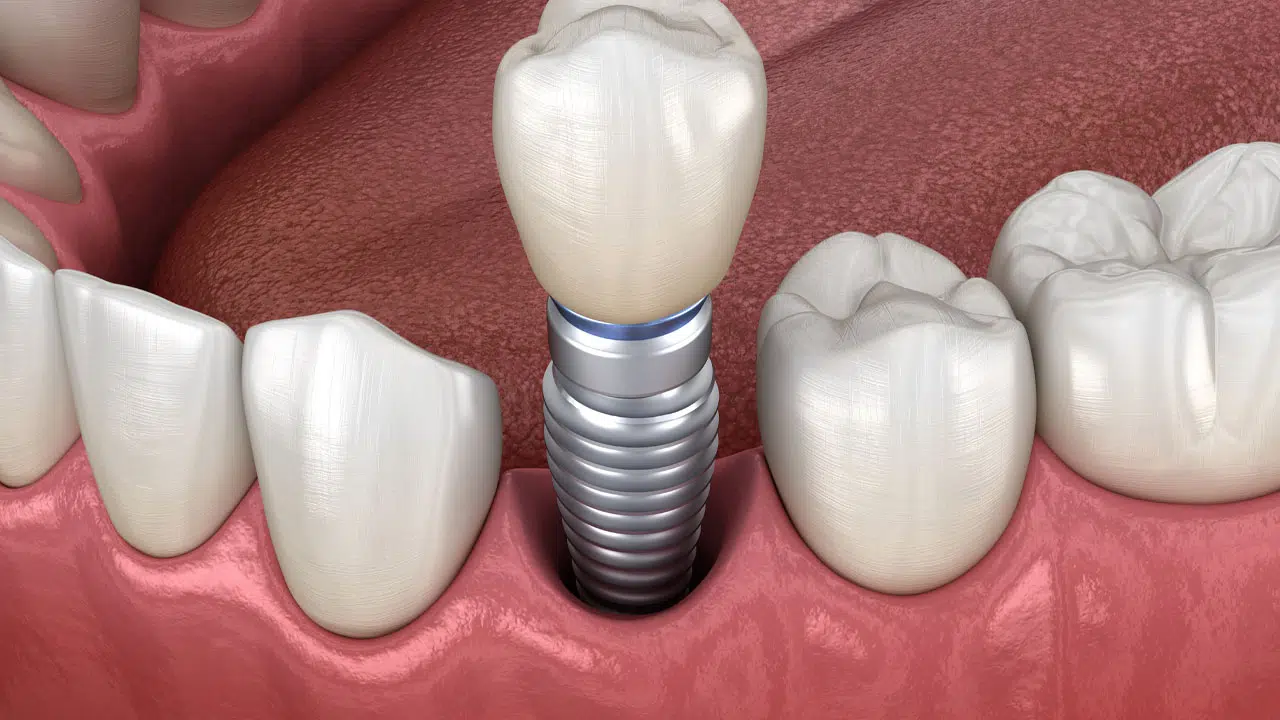
Dental implant surgery is a common procedure to replace a missing tooth that involves placing a post into the jaw and covering the post with an abutment and an artificial tooth. The procedure is highly successful and rarely causes complications; a 2018 study found that 98.6% of implants are still functional five years after the date of the procedure.
While dental implant surgery is safe and effective, there are some cases in which a patient may suffer from post-surgical complications. These complications range in severity, from mild sinus issues to severe nerve damage.
Peri-implantitis
The most common complication after dental implant surgery is peri-implantitis, occurring in approximately 1% of patients. Peri-implantitis is a disease that affects the soft tissue surrounding the dental implant site.
It is caused by a buildup of bacteria, plaque, and food and can cause similar symptoms as gum disease. These symptoms include receding gums and potential jaw degradation near the affected site. This may lead to implant failure or sepsis if left untreated.
Nerve Damage
Another relatively common condition that can develop after dental implant surgery is nerve damage. Symptoms of nerve damage include numbness or tingling, impaired speech, drooling, and trouble moving your mouth.
Damage can occur during surgery if drilling the jawbone irritates the inferior alveolar nerve. Nerve damage can also happen after surgery if the implant or post-surgical inflammation compresses the nerve.
Nerve damage is a severe and painful condition that must be treated promptly. Nerve damage due to bruising or inflammation is often temporary and resolves independently. However, in some cases, it can be permanent and require surgical repair.
Sinus Issues
Sinus issues, such as perforation of the sinuses, are a rare but severe potential complication of dental implant surgery. This occurs when the post is driven too deep into the maxillary jaw, causing it to perforate the sinuses. This can lead to recurring sinus infections and implant failure.
Sinus issues are typically prevented with sinus lift surgery before you undergo a dental implant procedure. However, if your surgeon miscalculated the depth of the sinus and used an implant post too long for your jaw, you may be at a higher risk of complications.
Gum Recession
Gum recession can occur if the implant is placed too close to the front portion of the gum or if the implant is embedded crooked. When this happens, there is not enough gum between the implant – which can be seen through the gumline – and the mouth. Receding gums can allow bacteria and debris to access the metal implant, leading to infection and implant failure.
Loose Implant
Implants can loosen for various reasons, including poor placement, lack of torque, trauma, poor healing, and poor stability. Typically, you will notice your implant has come loose by feeling the artificial tooth move. However, pain or sensitivity when chewing or biting down can also indicate that the implant is loose.
Prolong the Lifespan of Your Implants With Regular Dental Visits
While these complications may seem scary, it is essential to remember that even the most common complication only occurs in 1% of patients. To ensure you do not suffer from unnecessary complications from your dental implant, following all prescribed aftercare instructions, including sticking to a post-surgery diet, is important.
It is vital to schedule post-surgical follow-ups and general dental check-ups every six months to ensure no complications arise. Call Valley Dental Care of Plainfield at (815) 436-6800 to schedule your after-implant check-up.